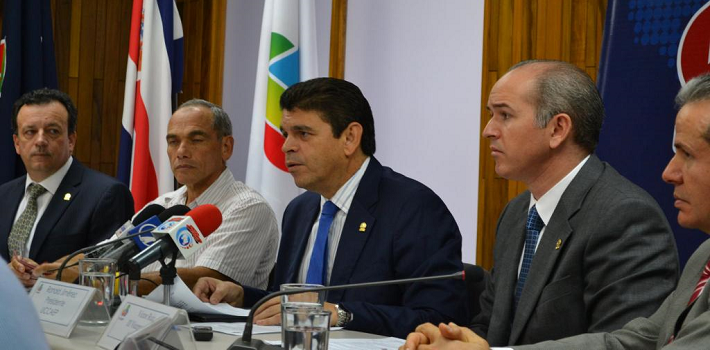
EspañolThe loss of 1,250 manufacturing jobs is a turning point for the Costa Rican economy. And it’s no surprise, given the administration of President Luis Guillermo Solís Rivera has sent very negative signals to the country’s business community since taking office in May.
The administration of President Luis Guillermo Solís Rivera has sent very negative signals to the country’s business community.
In a recent television interview, Solís made comments suggesting he had issues with the country’s private sector. According to the president, the business community believes in a macroeconomic system of “wealth concentration” that is not compatible with the social rule of law and the progressive direction he wants to take Costa Rica.
Furthermore, the ruling Citizens’ Action Party has joined forces with the progressive groups Broad Front and the Christian Social Unity Party in presenting a labor reform proposal. The changes would allow strikes in the essential public services sector, as well as permitting non-unionized companies to declare a strike with the support of more than 15 percent of their employees.
Curiously, even though the authors of the legislation claim support from the business community, the Union of the Chamber of Commerce strongly opposes the proposal.
Moreover, it is important to note that President Solís imposed a moratorium on solid-waste electricity production and natural gas extraction — even though Costa Rican natural gas does not require fracking — while extending the moratorium on petroleum exploration.
President Solís also claims he needs 18 months before announcing his energy strategy. Deputy Natalia Diaz of the Libertarian Movement, however, says two months is more than enough time for the administration to present their proposal.
In addition, the government’s proposed 2015 budget is 19 percent larger than the 2014 budget. This is troublesome for two reasons: the first is the risk of fiscal collapse, and the second is the private sector’s fear that confiscatory taxes will be imposed.
The ruling party is governing for a select few sectors; the business community does not appear to be one of them.
The business community’s concerns appear to be warranted. On September 11, the Solís administration declared its intention to raise the sales tax from 13 to 14 percent, suggesting the government will resort to tax increases in order to fund what is clearly a policy of reckless public spending.
It is difficult to convey the fear this government has struck in the hearts of the productive sector. In fact, the sentiment may be closer to hopelessness than fear. The 15 percent increase in higher education spending in 2015 indicates the ruling party is governing for a select few sectors; the business community does not appear to be one of them.
During the elections, there was uncertainty as to whether the Citizens’ Action Party would align themselves with the principles of economic liberty or 21st-century socialism. The Solís administration has done their part to clear this up.
 Versión Español
Versión Español












